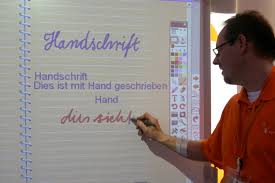When it comes to interactive whiteboards, I have mixed feelings. While I believe they were created with the best intentions to improve the classroom, they miss that mark. If actually used correctly, they would be much more successful. From my experience, and what seemed to be the case for many of my classmates, IWBs were only used by the teacher. They would put the notes on the whiteboard, so that they could use them in every class without having to redo anything. Other than that, there was no interaction with the boards. Since they did cost so much money, the teachers did not ant to take their chances with having us anywhere near the boards.

Besides that, they never seemed able to work properly. Most times, they were left untouched because they either needed to be calibrated or there was something wrong with the board itself. Because of this, it was used almost exclusively as a projection screen. The large amount of money that was spent on it could have been put to better use.
This article argues that one of the major problems facing IWBs coming into classrooms is the resistance to change. But, although that may be a small factor, I do not agree. I think that the biggest problem it faces is that not many people can use them properly - or are even taught how to utilize it! Technology can be very important, but if not used properly, then what is the point on wasting thousands of dollars?
Also, if it IS used properly, then it would be able to be differentiation-friendly, but as I've seen it been used, it is the opposite. It is very teacher-based, and the notes and lessons are the same for every student in every class. It is basically used as a fancy chalkboard! I know that some people ill not agree with me, but this is the way that I see it. It's not the best resource that we can use, and I think spending thousands of dollars on one is ridiculous.

